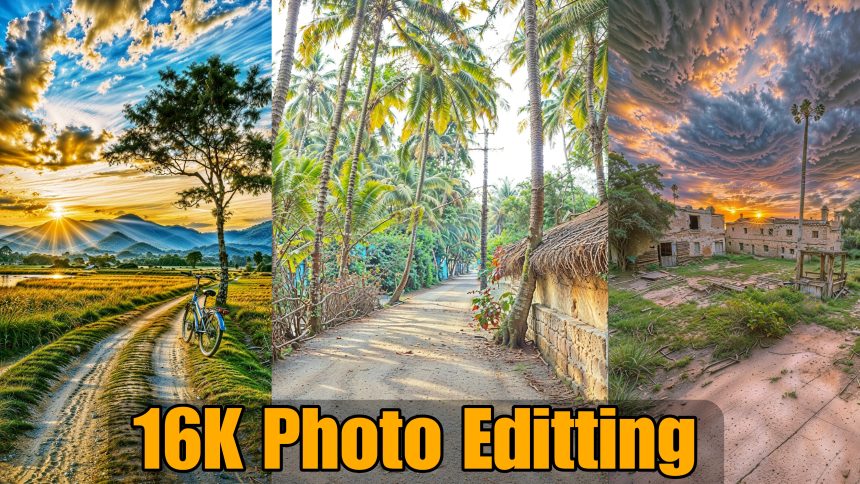The evolution of smartphone photography has been nothing short of revolutionary. We’ve moved beyond mere snapshots to capturing high-quality images that rival those taken with dedicated cameras. However, the true magic often lies in the post-processing stage, where raw images are transformed into captivating works of art. And now, Artificial Intelligence (AI) is taking center stage, ushering in a new era of intelligent image manipulation. This article explores the burgeoning world of AI best photo editing apps, delving into their capabilities, benefits, and the transformative impact they have on our creative workflows.
The Rise of AI in Photo Editing
AI has permeated various aspects of our lives, and photo editing is no exception. Machine learning algorithms, deep neural networks, and computer vision technologies are revolutionizing how we interact with images. AI-powered editing apps are capable of:
- Automated Enhancements: AI can analyze images and automatically adjust exposure, contrast, color balance, and other parameters, saving time and effort.
- Intelligent Object Recognition: AI can identify objects, people, and scenes within images, enabling precise selective adjustments and masking.
- Content-Aware Editing: AI-driven tools can seamlessly remove objects, fill gaps, and manipulate image elements with remarkable accuracy.
- Style Transfer and Artistic Effects: AI can apply artistic styles from famous paintings or other images to your photos, creating unique and captivating effects.
- Facial Recognition and Enhancement: AI can identify faces and automatically enhance features, smooth skin, and remove blemishes.
- Noise Reduction and Sharpening: AI algorithms can effectively reduce noise and sharpen images, improving clarity and detail.
Key Features of AI Best Photo Editing Apps
The most effective AI photo editing apps typically incorporate these features:
- Intuitive User Interface: User-friendly interfaces that make complex editing tasks accessible to both beginners and professionals.
- Comprehensive Editing Tools: A wide range of editing tools, including basic adjustments, filters, effects, and advanced AI-powered features.
- Real-Time Processing: Fast and efficient processing that allows for seamless editing without significant lag.
- High-Quality Output: Preservation of image quality during editing and export.
- Regular Updates: Continuous updates with new features, improvements, and bug fixes.
- Cloud Integration: Seamless syncing and storage of edited images across devices.
Top AI Photo Editing Apps for Android and iOS
While the market is constantly evolving, these apps stand out for their AI-powered capabilities:
- Adobe Photoshop Camera: This app utilizes AI to apply real-time filters and effects, enhancing photos before they’re even captured.
- Lensa: Primarily known for its AI-powered portrait editing, Lensa excels at enhancing facial features and creating artistic avatars.
- Picsart AI Photo Editor: This app offers a comprehensive suite of editing tools, including AI-powered object removal, background replacement, and style transfer.
- Remini: This app focuses on restoring old or blurry photos, using AI to enhance clarity and detail.
- YouCam Perfect: This app provides a wide range of beauty and portrait editing tools, including AI-powered skin smoothing and facial reshaping.
- Google Photos: While primarily a photo storage and management app, Google Photos incorporates AI for features like automatic enhancements, object recognition, and smart suggestions.
Benefits of Using AI Photo Editing Apps
- Enhanced Efficiency: AI automates repetitive tasks, saving time and effort.
- Improved Image Quality: AI algorithms can enhance image quality beyond what’s possible with traditional editing techniques.
- Creative Exploration: AI-powered tools enable users to experiment with new styles and effects.
- Accessibility: AI makes professional-level editing accessible to a wider audience.
- Personalization: AI can learn individual editing preferences and provide tailored suggestions.
Ethical Considerations
As AI-powered photo editing becomes more sophisticated, it’s crucial to address ethical considerations:
- Transparency: Users should be aware of when AI is used to manipulate images.
- Authenticity: Maintaining the authenticity of images is essential, especially in journalistic or documentary contexts.
- Potential for Misuse: AI tools can be used to create deepfakes or manipulate images for malicious purposes.
- Bias: AI algorithms can perpetuate existing biases, leading to unfair or discriminatory outcomes.
The Future of AI Photo Editing
The future of AI photo editing is bright, with advancements in:
- Generative AI: AI will be able to generate entirely new images or modify existing ones based on user prompts.
- 3D Photo Editing: AI will enable more sophisticated 3D image manipulation and editing.
- Real-Time AI Editing: AI-powered editing will become even faster and more seamless.
- Integration with AR/VR: AI photo editing tools will be integrated with augmented and virtual reality experiences.
Conclusion
AI best photo editing apps are transforming the way we create and interact with images. By harnessing the power of artificial intelligence, we can unlock new levels of creativity, enhance image quality, and streamline our editing workflows. However, it’s crucial to use these tools responsibly and ethically, ensuring that they are used to enhance, not distort, the truth. As AI technology continues to evolve, we can expect even more innovative and powerful photo editing apps that empower us to capture and share our world in new and exciting ways.
